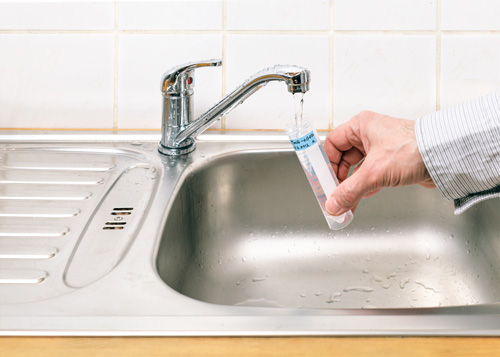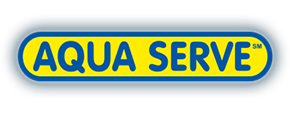Home Water Testing in the Denver-Boulder Area
 Whether your home’s water is supplied by a municipal water system, which is required to meet established water quality standards, or if you have a well on your property, testing your home’s water will help ensure that it’s safe for drinking, cooking, and much more. Water quality standards are an ever-evolving issue as science and research continue to provide more information on how a wide variety substances affect our health and our homes, over longer periods of time.
Whether your home’s water is supplied by a municipal water system, which is required to meet established water quality standards, or if you have a well on your property, testing your home’s water will help ensure that it’s safe for drinking, cooking, and much more. Water quality standards are an ever-evolving issue as science and research continue to provide more information on how a wide variety substances affect our health and our homes, over longer periods of time.
While our team is certainly not alarmist about the water that we and our customers drink at home, there’s plenty of evidence out there that some of the things we consume may have lasting impacts that we weren’t aware of initially. Our team’s position is that when it comes to our water, being proactive and achieving even higher quality water at home is worthy of your consideration. The first step in this process should be having your home’s water tested and learning more about what’s in it.
Why Should I Have My Home’s Water Tested?
The water in our homes is used every day for so many things, some of which we may take for granted: drinking, cooking, washing our hands and face, showering, brushing our teeth, washing dishes and clothes, ice makers, and houseplants – along with toilets – are some of the common home water uses many of us have grown accustomed to. Water that is too hard, whose pH is very high or low, or has potentially harmful contaminants, for example, can affect not just the quality and safety (translated: your health) of the water you consume, it can also have adverse effects on many aspects of your home’s plumbing system and appliances. Hard water can leave clean dishes cloudy, cause premature failure of valves in dishwashers and washing machines, deposit scale on faucets and sinks, and even mess with ice makers. Sulfur can cause unpleasant odors, and chlorine can dry out your skin when you shower. pH that’s our of whack can mess not only with your hygiene, but also with the very piping in your home. These are just a few examples of things we see routinely.
Testing your water is the first step in addressing issues such as these, and the best way to make sure there are no other potential issues going undetected. Of special note, in some cases you may need to have your water tested if you’re applying for a conventional home loan or a VA loan.
Our Team Can Help You Get Started
 For our customers in the Denver-Boulder metro area, the first step is often consulting with our plumbing department for assistance getting their arms around potential home water quality issues. We can provide dependable, professional testing services in-house for some the most common home water contaminants, and these relatively simple tests are often performed at no cost in conjunction with a free install estimate or other plumbing services. Our team can help determine if the substances or elements we’re testing for are within acceptable ranges, if it makes sense to look closer at home water treatment products, or if further testing is the best course of action. You can depend on our strong commitment to complete honesty and transparency in any water testing that our team performs.
For our customers in the Denver-Boulder metro area, the first step is often consulting with our plumbing department for assistance getting their arms around potential home water quality issues. We can provide dependable, professional testing services in-house for some the most common home water contaminants, and these relatively simple tests are often performed at no cost in conjunction with a free install estimate or other plumbing services. Our team can help determine if the substances or elements we’re testing for are within acceptable ranges, if it makes sense to look closer at home water treatment products, or if further testing is the best course of action. You can depend on our strong commitment to complete honesty and transparency in any water testing that our team performs.
At Save Home Heat Company, we provide basic water testing for:
- Hardness
- pH
- Chlorine
- Copper
- Iron
- Total dissolved solids (TDS)
For More In-Depth Water Quality Analysis
 In some cases, our team feels that the best course of action is more in-depth testing than we provide in-house. Many Colorado homeowners and other concerns find that our state testing laboratories provide a reliable, broad range of water testing services that cover virtually anything you might find in the water in a Denver area home, as well as the full scope of what may exist in wells out east and up in the foothills and mountains. If you’re interested in learning more about the Colorado Department of Public Health and Environment homeowner water testing program and services, we recommend visiting their website.
In some cases, our team feels that the best course of action is more in-depth testing than we provide in-house. Many Colorado homeowners and other concerns find that our state testing laboratories provide a reliable, broad range of water testing services that cover virtually anything you might find in the water in a Denver area home, as well as the full scope of what may exist in wells out east and up in the foothills and mountains. If you’re interested in learning more about the Colorado Department of Public Health and Environment homeowner water testing program and services, we recommend visiting their website.
The State of Colorado Laboratory offers a number of water testing packages, ranging from basic to quite comprehensive. If you are seeking water testing as part of the approval process for a home loan, for example, their Real Estate/VA/HUD package will satisfy most lenders’ requests. This package tests for coliform bacteria (E. coli), lead, nitrate and nitrite.
The state lab’s water testing packages are designed to accommodate a variety of circumstances that are commonly found around the state. These include real estate/HUD focused services, a variety of general and annual packages that are often a good starting point for homeowners, testing for mining and drilling purposes, as well as others that look deeper at a wider variety and heavier metals that may also be present in our water.
The State of Colorado Laboratory can test for the following, many of which are grouped together in packages:
- Dissolved solids
- Aluminum
- Arsenic
- Barium
- Beryllium
- Copper
- Fluoride
- Iron
- Uranium
- Cadmium
- Calcium
- Chloride
- Chromium
- Coliform bacteria
- Lead
- Magnesium
- Manganese
- Molybdenum
- Nickel
- Nitrate and nitrite
- Potassium
- Selenium
- Silver
- Sodium
- Sulfate
- Sulfur
- Volatile organic compounds (VOCs)
- Zinc
The State Labs can also test for:
- pH
- Hardness
- Conductivity
- Corrosivity
- Alkalinity
- Sodium absorption ratio
- Turbidity
How Much Does State Lab Water Testing Cost?
The cost of water testing depends greatly on the testing package or packages you choose, along with other variables. For example, for a 4 week projected turnaround (14 days is nearly twice the price), specific testing packages from the State of Colorado labs currently range from $37 to $265. Packages that focus on the typical Metro Area homeowner are often on the lower end of that price range.
Other Local Water Testing Sources
In addition to the State of Colorado, there are also water testing services available from a variety of established, independent area laboratories, which also provide reliable, in-depth water analysis. A quick online search should help get you started, or if you prefer, please contact our plumbing team for a recommendation.
Testing for Traces of Lead
It’s worth noting the specific importance of testing for lead in your home’s water. While lead is a naturally occurring metal, it has been found to be harmful to humans, especially children. There are no levels of lead in drinking water considered to be safe.
Lead service lines were common for delivering water to homes up until the 1950s. Although the Safe Drinking Water Act of 1974 banned the use of lead service lines, homes that were built before the 1950s may still have lead pipes. If your home was built around or before this time period, we recommend having your water tested to ensure the safety of your drinking water.
If your home’s water is supplied by Denver Water (which supplies more than just the City and County of Denver) and you have an older home, you may have access to free testing and complete replacement of your lead service lines at no direct cost to you through their Lead Reduction Program.


Should I Get My Home’s Water Tested?
Whether you’re seeking water testing because you’ve noticed symptoms such as scaling or odors, or simply desire to learn more and/or achieve higher quality water in your home, Save Home Heat Company can help. Our professional plumbing team can offer expert guidance on water testing for your home, as well as solutions to ensure the purity and safety of your water, if testing results indicate it makes sense to explore further. You will never experience hard sell or any sales hype from our team. Only honest, professional advice, focused firmly on your best interests, and continuing to earn your trust and future business.
Please contact us today for expert advice and low-pressure recommendations for learning more about and improving your home’s water quality.
Please contact me to discuss water testing or water quality solutions!
Tags: Home Water Testing, Water Quality



